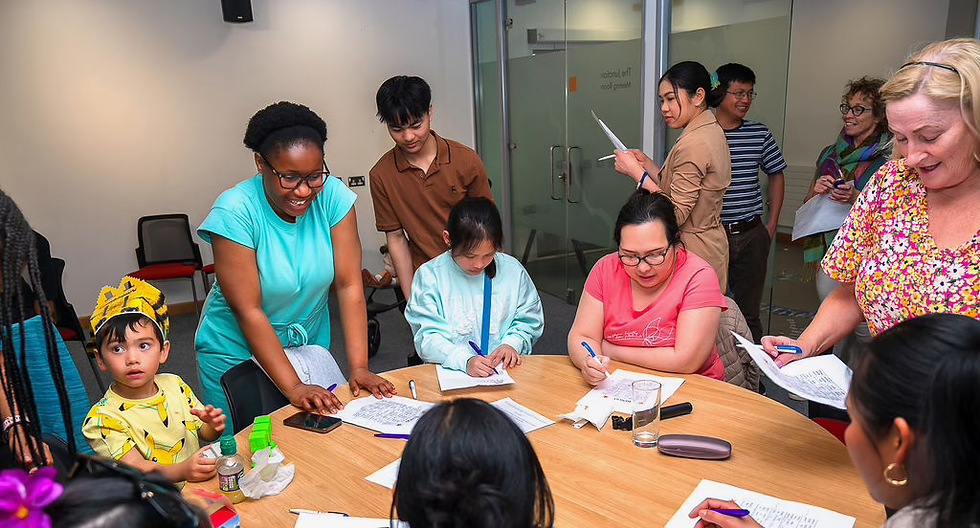Working collaboratively with minoritised ethnic communities

'Supporting Minoritised Communities' project launch. Photo Credit: Adi, ACCN
We're working with groups from minoritised ethnic communities, connecting them to the support they need to shape more resilient and sustainable futures.
What we're doing
Tailored support
-
Governance training
-
Communications development
-
Digital skills development
-
Leadership programmes
Connecting
-
Helping to connect with colleagues, funders and statutory agencies.
-
'Community of practice', a supportive peer-network.
Partnership
-
Support designed with, not 'for', minoritised ethnic communities.
How it all started
Community groups are an essential scaffold for the wellbeing and development of the community: that's why our core work is to build the capacity of community organisations and community-minded individuals.
We've always had a particular interest in working with communities who face barriers to participation in social, economic and public life. That's how we got to know two incredible community organisations: Kabalikat In North West, representing the Filipino community; and the African Caribbean Community Network.
As we developed our relationship, it became clear that organisations representing minoritised ethnic communities in the North West are largely volunteer-based. Members balance community development with demanding jobs in essential services, leading to chronic under-resourcing and fewer opportunities.
That's why, with the support of Dormant Assets NI, we've partnered with Kabalikat and ACCN to provide capacity, resilience and sustainability support to minoritised community organisations. We're initially focusing on our two partners, before broadening the scope to include organisations throughout our region.

Roisin McLaughlin, NWCN Coordinator; Jonah Atos, Kabalikat; Doreeen Murugi, ACCN. Photo Credit: Adi, ACCN
Meet our partners
Designed with. Not 'for'.
We understand that simply identifying a social need doesn't give a mandate to address it: people should be meaningfully involved in the development of their own community.
We've learned that this is especially important to minoritised groups, for whom non-participatory projects—no matter how well intended—can often heighten the sense of marginalisation the work is trying to address.
That's why we think carefully about our approach—to design this project with our partner groups, not 'for' them.
Supported by

